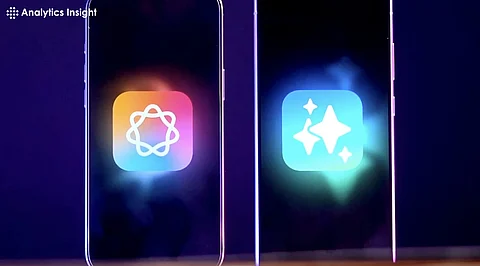

Among the top pillars of current technology is artificial intelligence, and heading the charge are Google and Apple. Both of these companies have taken enormous leaps in AI technology in the year 2025 to develop user experience through smart devices and services.
Google and Apple's AI abilities are against one another here based on their AI assistants, privacy, integration, and using hardware to decide whose AI experience is superior.
Siri and Google Assistant reign supreme in their realm as virtual personal assistants that do things, give answers, and manage a quantity of services.
Google Assistant: Owing to its great natural language comprehension and large knowledge base, Google Assistant performs well in understanding context and providing real-time accurate information. It is nicely integrated into the list of services offered by Google, and services such as Google Lens and real-time translation are served with ease. Google Assistant has been made capable of invoking app actions in recent releases, and it is more useful.
Siri: Apple's Siri has become more personalized in its functionality, leveraging in-device processing to ensure privacy. Siri is highly integrated into Apple's ecosystem, controlling devices like the iPhone, iPad, and HomePod. Siri's contextual awareness and multi-step command functionality have been strengthened with recent software updates. Siri cite turn0search5
Winner: Google Assistant excels at natural language understanding and compatibility with many varied services. Siri has a privacy-conscious approach with enhanced integration into the Apple ecosystem, however.
Privacy is a major consideration in AI technology, and its influence is quite strong on adoption and trust from users.
Google: Google has been criticized for its management of data privacy. To that effect, it has moved to offer users greater control over data, such as more open data use policies and data controls.
Apple: Apple boasts itself as a privacy company, focusing on local data processing to reduce sharing of data. Features such as App Tracking Transparency and App Store privacy labels are examples of Apple's focus on user privacy.
Winner: Apple's focus on local processing and privacy offers a more secure experience for users worried about having to handle data.
Its popularity is heavily dependent on its feature integration with other devices and services.
Google: Google AI is integrated in a staggering amount of services such as search, maps, and YouTube to create a seamless experience. Android device support and integration with third-party applications also contribute heavily to its flexibility.
Apple: Apple's AI is nicely integrated throughout its ecosystem such as iOS, macOS, and HomeKit. It makes Apple device usage easier with Continuity and Handoff features enabling seamless device switching.
Winner: Apple's ecosystem provides users with a cohesive and seamless experience across all of its devices. Google's AI provides greater cross-platform integration and service integration.
Use of AI in hardware improves device performance and user experience.
Google: Google Pixel devices use AI for feature activation, like computational photography, to improve image quality through software processing. The Tensor G5 processor enables the AI features, like sophisticated ones like real-time language translation and personalized recommendations.
Apple: Apple smartphones, like the iPhone 16e, embrace AI via the A18 chip that offers better camera capabilities and tailored user experiences. Apple Intelligence gives priority to processing on the device for security and efficiency.
Winner: Both of them use AI in their smartphones. Apple's on-device processing enjoys the luxury of privacy, whereas Google's integration with its services gives it an extended AI experience.
Google and Apple both grew extremely heavily in AI in 2025, both doing one aspect better than the other. Google does natural language processing better and seamless integration into an enormous amount of services and has a generic AI experience.
Apple does privacy and seamless integration within its system better and has an integrated and secure experience. The consumer needs to compare the two against their own value of integration, privacy, and number of AI services.
